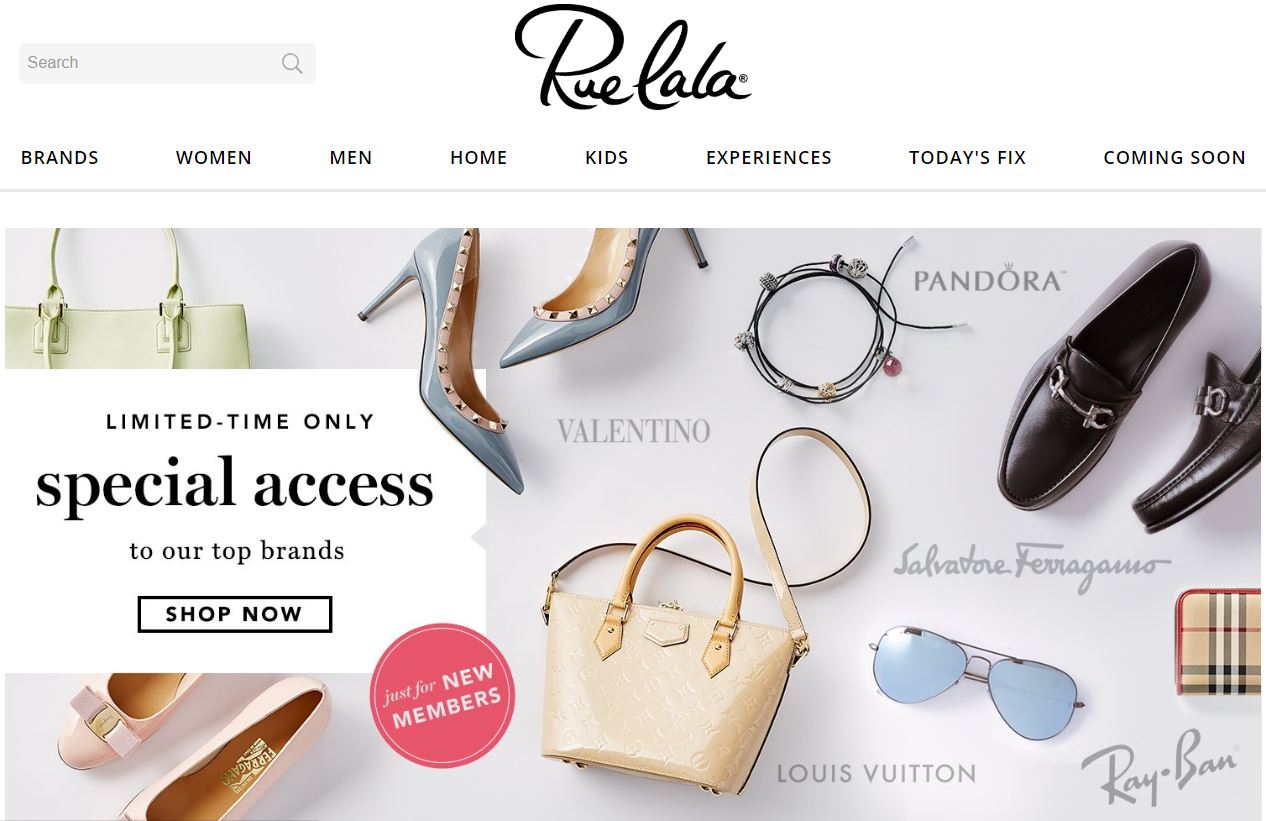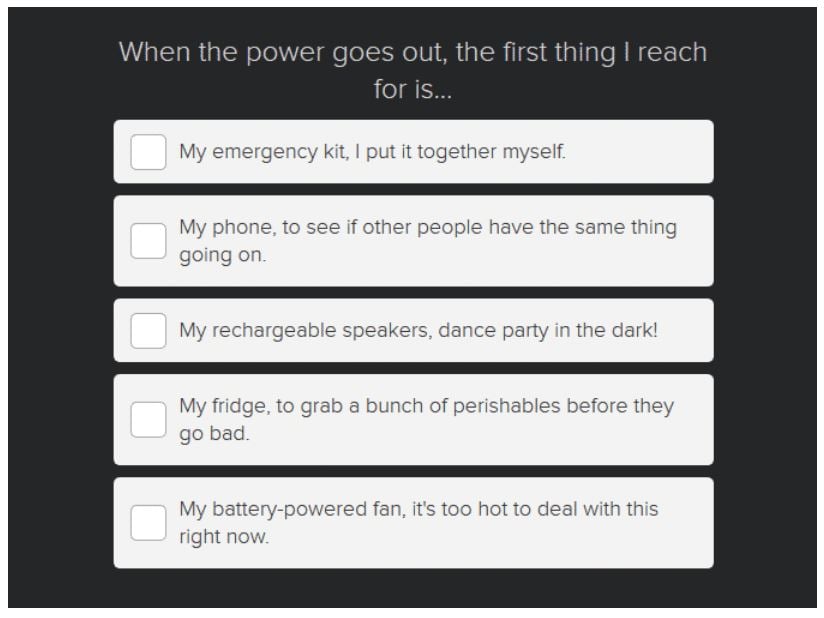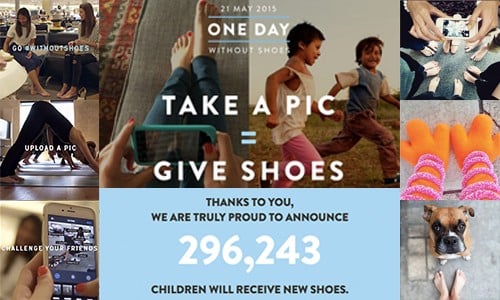Marketing is essential for all businesses, but even more so for startups. When you start a new business, the biggest challenge can be to let potential customers know about your product or service. But marketing can also be expensive as the billion-dollar global marketing industry can attest to. If you own a startup, chances are you don't have a big marketing budget. Not with the average cost of starting a business being around $30,000.
The good news is, you don't need to break the bank to spread the word about your new business. In fact, the best marketing ideas are often simple and inexpensive, but they don't come out of the blue. You will need to think out-of-the-box and be innovative. Building a brand is an ongoing process, so get the creative mindset from the outset, and you will reap the benefits in the future. When you start working on your business plan, include a marketing strategy so that it is front and centre in your planning and not just added willy-nilly as you go along. The importance of consistency in the brand and message of startups cannot be overemphasized.
8 Killer Startup Marketing Ideas (That Won't Break The Bank):
8 Startup Marketing Ideas That Won't Break The Bank:
Once you have a marketing strategy built in line with your business plan that identifies your target market, value proposition and the channels through which you want to build your brand, there are easy and affordable ways to get your message out there. Here are 8 affordable marketing ideas that you can use to launch your startup into the stratosphere.
1. Build a reputation
Building a reputation for being good at whatever it is your product or brand offers is key to being successful at marketing. But you are an unknown startup with no track record and therefore no way for people to know whether they can trust you or not. What do you do?
One way to do this is to get featured in a major publication. The great thing about social media is that it gives you a direct line to big brands and businesses. Build relationships with big publications by sharing their posts, engaging with their content and following their editors. Be authentic and not too promotional. You don't want to seem like a kiss-ass but it will put you on their radar. Getting featured in a publication with major reach can give you a big boost in terms of traffic to your website and product sales.
Another way to build a reputation is to partner with other brands. An example of a hugely successful brand partnership is between GoPro and Red Bull. They have collaborated on many events and projects together and are a perfect fit as both subscribe to the value of reimagining human potential. Their biggest stunt together by far was "Stratos," in which Felix Baumgartner jumped from a space pod more than 24 miles above Earth's surface with five GoPro cameras strapped to his person. Baumgartner set three world records and made headlines around the world.
Of course, not everyone can partner with a company as large as RedBull or GoPro, so do some research and find a strategic partner that will give your brand exposure and build your reputation.
2. Have an exclusive element

Source: ruelala.com
When the discount shopping website Smartbargains.com started to see sales drop in 2007, CEO Ben Fischman decided to start a spin-off site called Rue La La. The site sold high-end designer goods on a flash-sale basis, i.e. deals were only available for a few hours or days at most. The trick was that you had to be invited by an existing member to shop on the site. Sales went through the roof and Fischman sold Rue La La in 2009 for $350 million. The irony of this story is that Rue La La sold the exact same products at the same prices than Smartbargain.com. Why was it so much more successful? Exclusivity.
People love to feel like they are getting a product or service exclusively. Simply put, it makes them look cool. It gives them social currency. Your product might not necessarily be exclusive, but the way people hear about it could give them the feeling that they are getting it first and exclusively.
A good way for online businesses to make use of the exclusivity principle is to give people early access to the beta version of your site or app. If you don't want to give this access to just anyone, consider giving access to influencers or opinion leaders that would spread the word. Sites like PayPal, Slack and Pinterest have successfully used this strategy.
3. Raise your visibility with stickers
Marketing is all about visibility. People need to know about your brand to be able to buy it. The well-known phrase, "Monkey see, monkey do" captures more than just the human tendency to imitate others. It also implies that it's hard for people to copy things that they cannot see. In other words, we need to make our ideas and products visible. That's why Apple puts its logo on every iPhone and Mac computer it distributes. Every time someone opens a Macbook in a coffee shop, the Apple logo is displayed and Apple Inc. cashes in on free marketing.
There are many ways to increase your visibility but one of the simplest ideas (remember, we're thinking low-cost and high-exposure) is to give away stickers. Long before people were liking or sharing posts on the Internet, they were placing stickers on their bumpers, windows, water bottles, laptops, equipment, signs and phones. In fact, if you saw someone with a Harley Davidson, you took it as a personal endorsement from that person of Harley Davidson.
Stickers displaying your logo, website URL and brand name are great for spreading the word about your brand. Hand them out or stick them in public places where you know your target market will see them. Reddit founder Alexis Ohanian spent his entire marketing budget of $500 on stickers when the website launched and look where it is today. The power of stickers is real.
4. Make it a challenge
While having your product go viral is pretty much the holy grail of marketing these days, it can sometimes be challenging to keep the benefits of the virality linked to your brand. Once your content starts to spread, it can be difficult to control the meaning people take from it.
A trick to circumvent this is to link a challenge to your viral content that makes a connection with the brand. For instance, if you are starting a new coffee business, creating an Instagram quiz about the health benefits of coffee so that whenever coffee lovers are talking about whether it's good or bad for your health (it's an ongoing battle between the yea's and nay's) they'll refer to your brand's information. (It’s also a great way to increase your Instagram engagement rate.)

A business that successfully used this idea was BioLite, a company that develops and manufactures energy efficient products that can recharge other devices. They created a quiz called, “What would you do with 10 watts?” as a way of repurposing existing content on their website about all the different devices their products can recharge.
5. Send an email, but to the right people
Email marketing seems so 2004, but the truth is that the right email sent to the right person is marketing gold. To use this marketing strategy to its full potential, you first need to collect prospective clients' email addresses. If your startup has a website, consider placing a newsletter signup form on it. Alternatively, you can ask customers directly for their email addresses.
If you're only going to send advertorial emails, you might as well leave it as subscribers will probably opt out of receiving your newsletter. Rather diversify your emails with non-commercial content like blogs, explainers, videos and infographics.
To be even more successful at this strategy, do some research about the type of people who are likely to share your product or service. For instance, tech junkies often hang out on forum sites. If your business is a new app that accurately predicts the weather, collect the email addresses of those people who often post about weather services. They are likely to be people with an interest in weather related products. If they like your app, they might include it in future posts. If you want to reach out to influencers in this way, there is a specific way to do this, which you can read all about in Influencer Marketing Hub’s article on this.
6. Have a referral program
One of the basic tenets of successful marketing is using your product or service to create advocates for your business. In the era of social media, word-of-mouth is everything. Research by McKinsey suggests word-of-mouth referrals make up 20-50% of most purchasing decisions (especially for new businesses and in emerging markets).
Humans are social creatures. We love to tell people about stuff that happened to us, or new things we came across. If we had a good experience, we are wired intuitively to tell all our friends about it. While organic referrals are priceless, it's not enough to rely on customers to refer other people to you out of the goodness of their hearts. You have to give them a reason to do so, otherwise they will stop eventually. Therefore, you need a referral plan.
Make a list of possible referral sources, or advocates. This can be anyone from current customers, past customers, and potential customers, to industry leaders, influencers, vendors, etc. This will give you solid footing to start out with. Reach out to them and make sure to set out clearly what the incentives are for them to refer people to you.
7. Get a social cause
In an era of social responsibility, consumers, and particularly millennials, are increasingly looking to businesses as a force for positive social impact, and when brands engage in social issues, they are more likely to earn their trust and loyalty. Connecting your brand to a social cause could be what makes potential customers turn to you instead of the competition, if a study by Alloy Media, which found that nearly 95% of students say they are less likely to ignore an ad that promotes a brand's partnership with a cause, is correct.

There are many examples of brands promoting causes. Shoe brand TOMS ran a campaign to donate a new pair of shoes to a child in need for every person who Instagrams a barefoot picture with the hashtag #WithoutShoes, during the time between the company's birthday and One Day Without Shoes. The campaign has been running for several years.
Similarly, Procter & Gamble's Olay skin-care line partnered with the American Society for Dermatologic Surgery. Its campaign goal was to inspire women to protect their skin from the sun. The campaign resulted in more than 9,000 people going for free skin-cancer screenings.
This type of cause marketing gives your business a tangible presence and if done right can do wonders for your brand's name recognition and reputation.
8. Giveaways
Yes, giveaways are as old as the mountains but there is a reason businesses have been doing it and it doesn't have to cost an arm and a leg either. You can give away something as simple as a T-shirt with every purchase of your product, which creates an identification with your brand that others will begin recognizing.
Your giveaway can also be the result of a contest. There are thousands of giveaways on social media every day, especially by Instagram influencers who get paid to promote businesses' products. You can do it this way, but check if the influencer you are eyeing is the real deal before you collaborate with them. Alternatively, you can host the giveaway or contest on your website, where you will have the added benefit of traffic to your site which exposes potential consumers to your other products and services. Don't forget to make your giveaway fun. The best promotional giveaways use elements of gamification to elicit feelings of intrigue and excitement in participants.
For example, 23 City Blocks Catering gave away 23 different prizes, on 23 different days. Each day’s prize was revealed by clicking on the website's landing page on the day. This is a very clever way to inspire curiosity and create engagement in a giveaway.
Frequently Asked Questions
How do I market my startup?
Prioritize the following strategies to market your startup:
1. Build a reputation
2. Have an exclusive element
3. Raise your visibility with stickers
4. Make it a challenge
5. Send an email, but to the right people
6. Have a referral program
7. Get a social cause
8. Giveaways
How do you promote a startup idea?
Here are 8 affordable and effective ideas to promote your startup:
1. Build a reputation
2. Have an exclusive element
3. Raise your visibility with stickers
4. Make it a challenge
5. Send an email, but to the right people
6. Have a referral program
7. Get a social cause
8. Giveaways
How do you start a marketing strategy for a business?
To build a successful marketing strategy for a business, keep these steps in mind:
Identify your business’ primary goals
Be clear with your marketing goals
Research your market
Understand your customers
Build a profile of your competitors
Build a marketing strategy based on your goals
Test your ideas
What are the three main marketing tips for business start ups?
These are some of the primary sales and marketing tips for business start ups:
Sell your benefit - and avoid comparison
Understand your customers
Market your products - even before it’s ready
Think outside the box and test your products
Advertise, constantly
Allow customers a chance to review your products
What are the tips for marketing?
These are some of the top 8 tips for marketing:
1. Build a reputation
2. Have an exclusive element
3. Raise your visibility with stickers
4. Make it a challenge
5. Send an email, but to the right people
6. Have a referral program
7. Get a social cause
8. Giveaways


